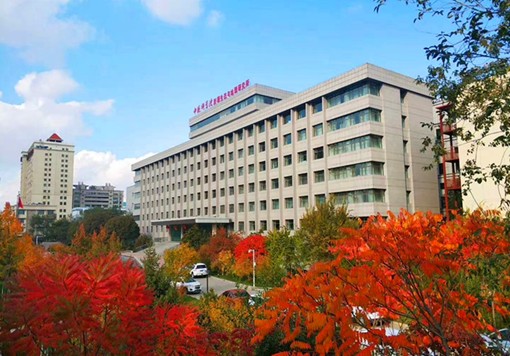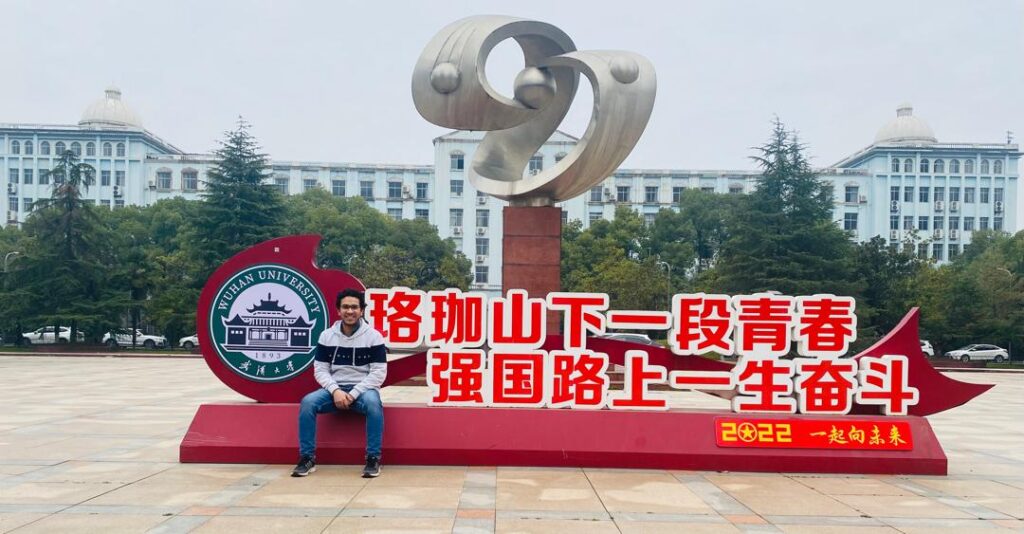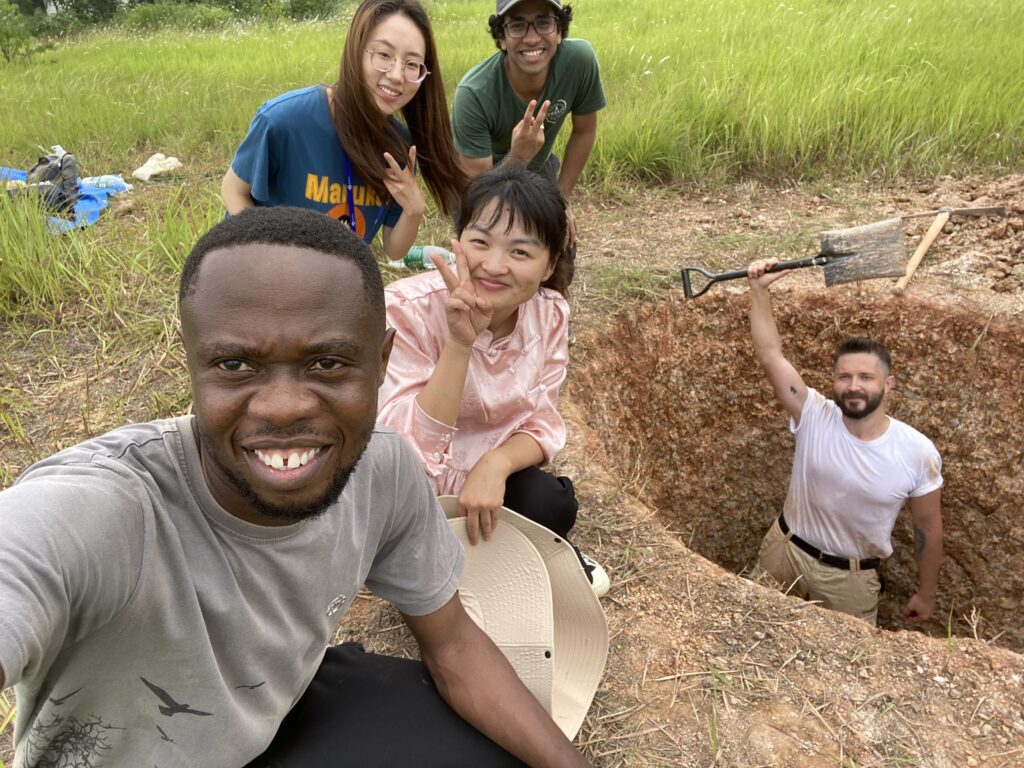Hello, my name is Kanat, and I have experience studying at the UCAS China Doctorate, which I would like to share.
After searching for various options for doctoral studies, in 2016 I was enrolled in the CSC program at the University of the Chinese Academy of Sciences (UCAS).

The Xinjiang Institute of Environmental Geography in the city of Urumqi, XUAD, China became the hosting organization. This year became a time of serious changes for me.
Before I started learning, my ideas about China were stereotypical. I had concerns related to the potential difficulties of adapting to a new environment, including problems with the language barrier, among others. Initially, my family and I faced difficulties in communicating with Chinese residents, as I did not know the Chinese language upon arrival. However, classes at the Xinjiang Normal University with our professors who taught foreigners, Li, Xue, Wei, and others, helped us a lot.
One of the challenges was the UCAS’s requirement to study Chinese and pass the HSK exam. However, after more than half a year of study and independent training in the summer of 2017. In the HSK testing center at Beijing University, I successfully passed the HSK 3 exam for foreigners.
Another challenge for me was the presence in classes of mixed groups consisting of master’s and doctoral students since there is no such practice in our country. Once, at the very beginning of my studies, I asked the master’s students about the reasons for the joint study of master’s and doctoral students, to which one of them asked about the reasons for the importance of this question for me. After that, I reconsidered my view on this model of education, and now I think it is possible to implement it in Kazakhstan. I understood that this helps to correctly perceive information from different points of view, position oneself in society, and exchange information.
At the moment of admission to doctoral studies, I was already a teacher with many years of experience in scientific work. I worked at the Institute of Geography for more than 9 years and also taught at the leading universities of Kazakhstan. However, even with sufficient experience in geography, I was completely ready to acquire new skills and new knowledge during my doctoral studies.

Before China, I thought that I knew all the basic methods of geographical analysis and related instruments. The first lessons showed that I was wrong, so I had to readjust myself to correctly perceive new knowledge and skills. Since one of the main tasks of a doctoral student is the preparation of scientific texts, analysis of data, and writing of scientific articles, I had to learn to apply new scientific methods. So it was in China that I started using scripts in programming languages. Even though there were regional restrictions on the Internet, the task was to process a large amount of data for the preparation of an article and then a dissertation. Therefore, after some searching for tools and the advice of more experienced colleagues, I started using the R language for processing optical space images. After some time, I switched to the Python programming language, as its tools were more suitable for my tasks. As a result, I learned to process a large number of space images with minimal time consumption. High-level tools and programming turned out to be useful also because their licenses allow free complex types of data analysis, including their classification, data reconstruction, analysis of vegetation cover’s phenophases, interpolation, and other types. In the case of my scientific work, it was necessary to determine the class of land cover on my project territory. Using Python greatly simplified my work.
During my studies in China from 2016 to 2019, I was able not only to improve my knowledge, but also Professor Jilili and colleagues from his research group helped a lot to improve the research work on the chosen topic. Therefore, China has made a significant contribution to my knowledge, and that helped my work at home. At the moment, I am the PI of the scientific grant from the Ministry of Science and Higher Education of Kazakhstan. In addition, I teach at the L.N. Gumilyov Eurasian National University, from where I once received a recommendation for admission to a doctoral program at UCAS in China.
In addition to everything else, at the beginning of my story, I mentioned that the absence of a Chinese language (PutongHua) was a big obstacle at first. But after 2 semesters of studying the Chinese language, its grammatical laws and vocabulary, classes on cultural exchange, and Chinese calligraphy at the Xinjiang Pedagogical University, as well as China Panorama at the Beijing branch, it became the key to a better understanding of the worldview and thinking of the people from China and strengthening mutual cultural exchange and friendship with the residents. I also note that, in addition to everything else, I was able to find many friends from different countries. I still communicate with some of them today. I think that among the lessons I learned during my stay in the People’s Republic of China, I can name constant development and friendship without borders.

I always remember with great gratitude and warmth all my teachers at UCAS, Xinjiang Pedagogical University, as well as professors at the Xinjiang Institute of Environmental Geography. I wish good and strong health to our teachers and all readers, and I believe that all of us are doing a great job for the sake of future humanity!




